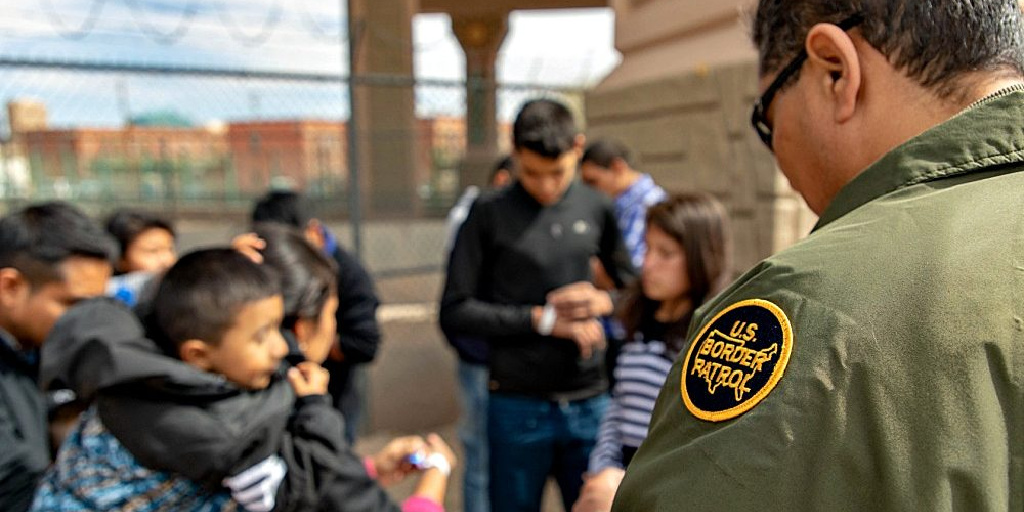Ports of entry along our borders are supposed to be where people in need of protection can come to seek humanitarian relief. But since 2016, every presidential administration has used different tactics to turn people away from ports of entry (POEs) along the U.S.-Mexico border before they even get there. Finally, in October, the Ninth Circuit held that turnbacks are illegal, and that the metering policy that implemented them violated immigration law.
The appellate court’s ruling is a long time coming. Al Otro Lado, which provides on-the-ground legal and humanitarian support to asylum seekers, along with a group of individual plaintiffs, have been fighting against U.S. Customs and Border Protection’s (CBP) use of metering since 2017 through a lawsuit filed by the American Immigration Council and its partners.
Under metering, which was formally in place from 2017 to 2021 but began in 2016, CBP officers stationed at the border turned away asylum seekers attempting to present at POEs. Such turn backs involved intimidation, coercion, physical and verbal abuse, and other unlawful tactics.
Because CBP refused to process individuals who had been turned away, it didn’t keep records of impacted people. Instead, asylum seekers often had to place themselves on informal “lists” maintained by different groups on the Mexican side of the border and wait until CBP contacted the list administrator to allow a small number of asylum seekers to present at the POE on a given day.
CBP often attempted to justify the metering policy by citing a lack of capacity to process people at POEs. But in 2020, the Office of the Inspector General for the Department of Homeland Security (DHS) found that many of CBP’s claims about capacity issues did not reflect reality.
Metering, which has officially ended as a policy, and turnbacks – which continue at POEs in different forms – led to devastating consequences for thousands of people, many of whom were urgently seeking protection in the United States. Vulnerable families and children have been pushed back and left stranded indefinitely in precarious conditions in northern Mexico. Migrants there routinely experience high levels of violence, exploitation, and lack of access to healthcare and basic necessities.
In its recent ruling, the court of appeals held that people who are attempting to reach POEs and are stopped at the border by CBP have a right to apply for asylum under the Immigration and Nationality Act. When CBP turns people in this situation back, that violates the government’s legal obligation to inspect and process them. The appeals court also partially upheld an injunction granted by the district court that prevents the government from applying the Trump administration’s asylum transit ban to people who were only subject to the ban because CBP illegally metered them.
This is a significant legal victory regarding asylum seekers’ rights under our immigration laws, even though the court’s ruling may not have an immediate practical implication because the policy is no longer in effect.
However, other challenges to CBP’s policies and practices at POEs could benefit from the court’s ruling. Al Otro Lado and Haitian Bridge Alliance, another organization providing vital services to underrepresented migrant groups, filed a lawsuit in July 2023 challenging CBP’s turnbacks of asylum seekers who lack appointments made through the CBP One smartphone app. The majority of plaintiffs’ claims in that case recently survived a motion to dismiss. But the Biden administration issued a proclamation and new policies in June 2024 that pose yet another obstacle to asylum seekers attempting to access ports.
All these policies work to keep people away from lawfully presenting at POEs. Paradoxically, they also cause people who urgently need protection or who cannot survive in the life-threatening conditions of northern Mexico to irregularly cross the border between ports. This has occurred even as DHS officials publicly asked asylum seekers to go to POEs to request protection and stated that DHS is committed to “safe, orderly, and regular” migration.
Of course, this administration—and whoever is elected this week—could immediately align CBP’s current practices with the Ninth Circuit’s ruling. The government could follow the law and simply stop turning asylum seekers away from POEs, ensuring that people have a safer, more dignified way to access their statutory right to seek protection. Unfortunately, as the last eight years have shown, it rarely chooses to do so—to the detriment of migrants, advocates, and the American public.

















